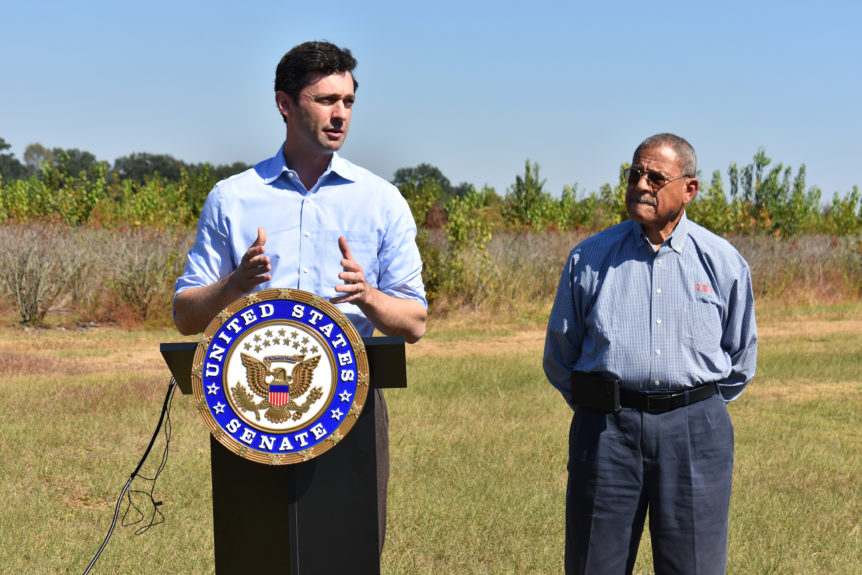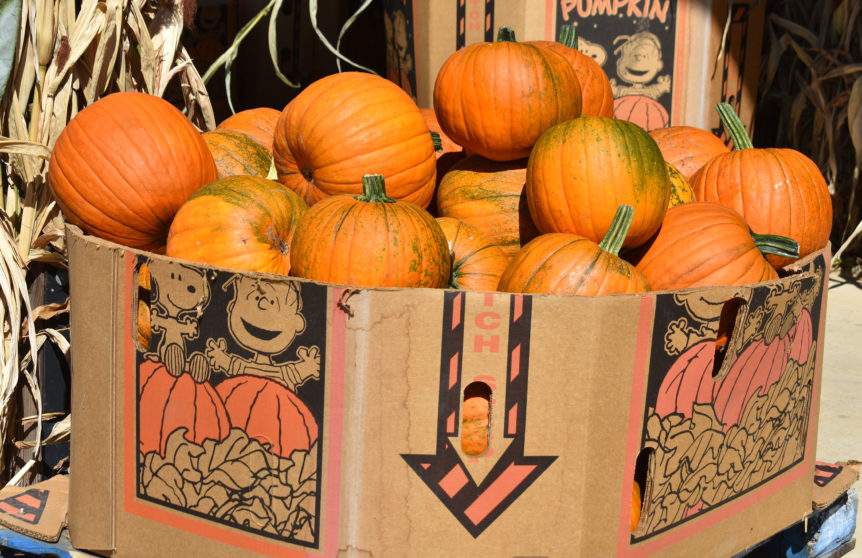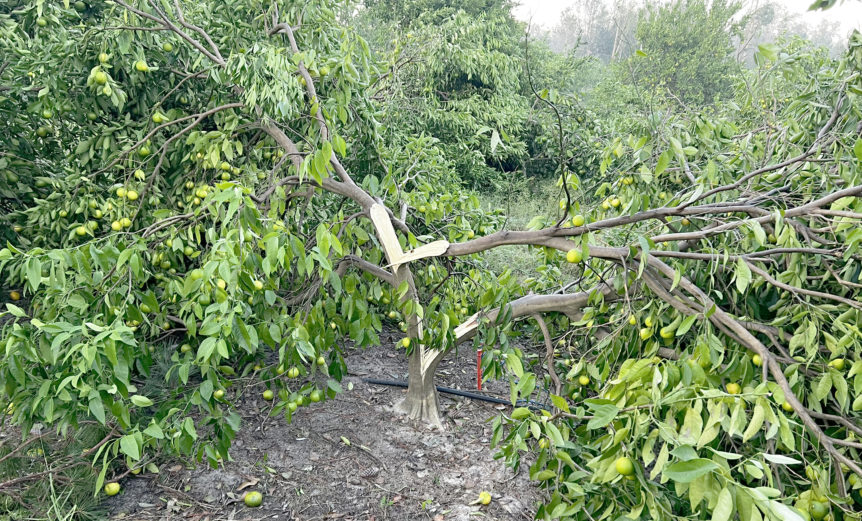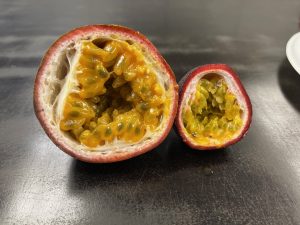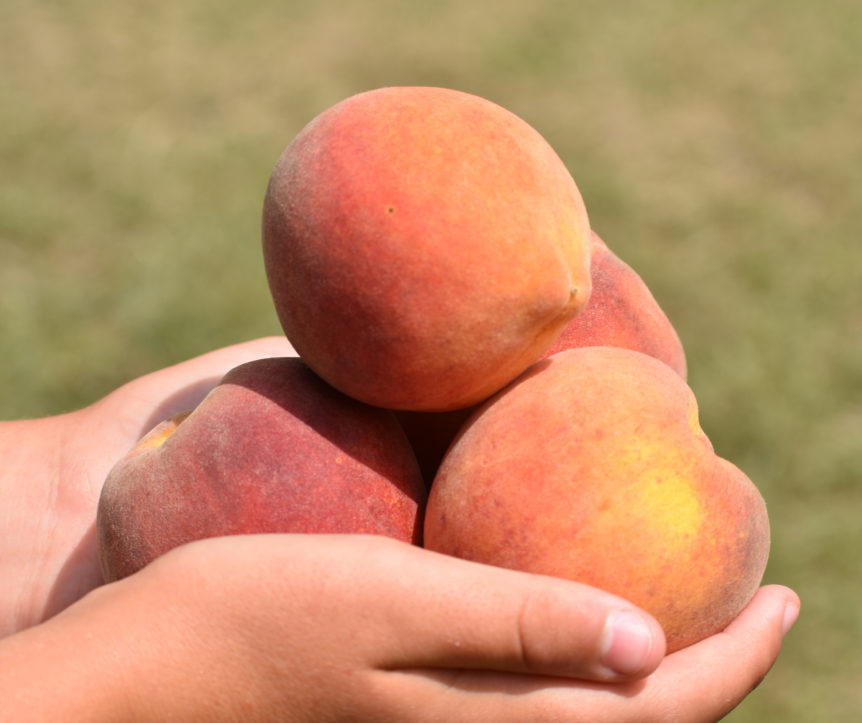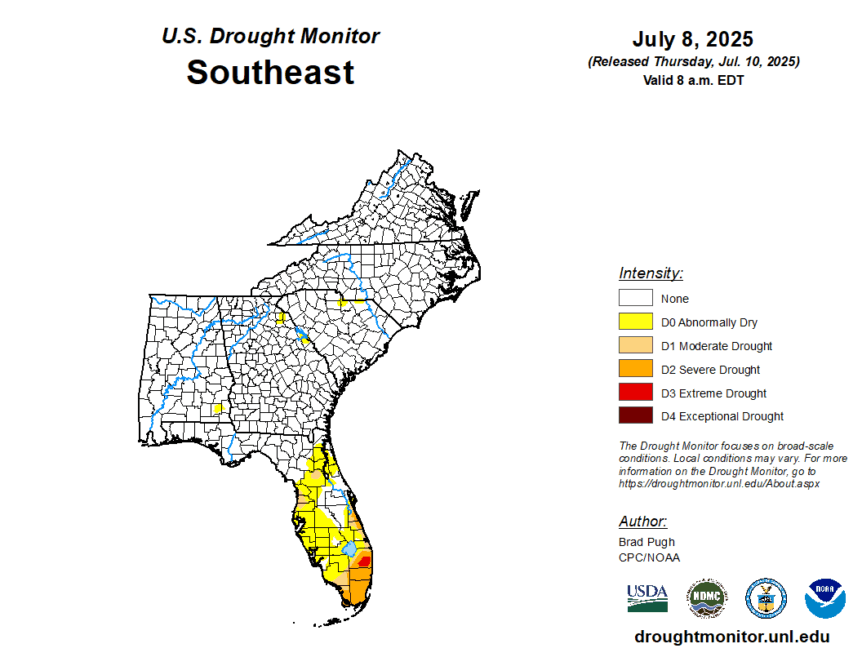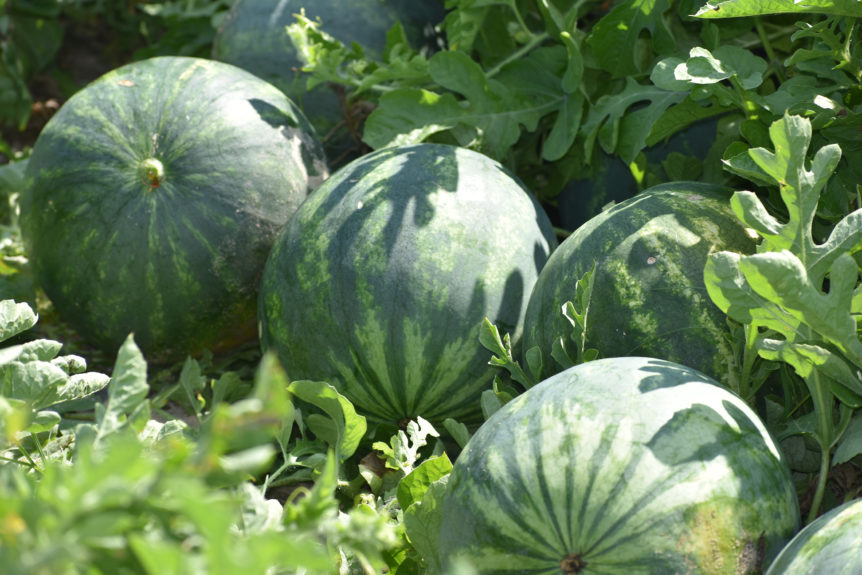Washington, D.C. — In his continued fight for Georgia farmers, Sen. Jon Ossoff sent a letter to U.S. Department of Agriculture (USDA) Secretary Brooke Rollins and Georgia Agriculture Commissioner Tyler Harper requesting answers on the lack of movement on a block grant agreement for federal relief more than 9 months after Hurricane Helene devastated Georgia’s agricultural communities — and more …
Rain, Rain Go Away: North Alabama Specialty Crops Impacted By Excess Moisture
By Clint Thompson North Alabama fruit and vegetable farmers have had plenty of rainfall to work with this summer. It has been above average throughout the region, according to Eric Schavey, regional Extension agent in Northeast Alabama. He highlighted the various impacts from the increased rainfall growers experienced in June and July. “Two weeks ago, we were 5.5 inches higher …
Specialty Crop Leader: SDRP Funds Coming At Good Time
By Clint Thompson Financial relief is available for specialty crop producers who suffered eligible crop losses due to natural disasters in 2023 and 2024, through the Supplemental Disaster Relief Program (SDRP). That means much needed assistance for growers in Alabama and Georgia who have dealt with their share of hurricanes, freeze events and prolonged drought over the last couple of …
UF Research Unlocks Nutritional Value, Shelf-Life Potential of Passion Fruit
With passion fruit, you get more than just a tasty drink or snack. It is packed with nutrients like vitamin C, fiber and antioxidants, making it a popular choice for healthier eating. It’s also important to farmers in tropical and subtropical regions – including central, Southeast and Southwest Florida – where it supports local economies. Understanding how varieties of passion fruit …
Georgia Peach Season Nearing End
By Clint Thompson Georgia peach producers are nearing an end to this year’s harvest season. They are expected to conclude harvesting this year’s crop in early August, says Jeff Cook, University of Georgia Cooperative Extension agriculture and natural resources agent for Peach and Taylor counties. Cook discussed this season’s production which has been strong despite persistent rains and numerous bouts …
Specialty Crop Grower Magazine: N.C. Marketing Programs Provide Local Link to Growers
By Frank Giles Editor’s Note: This is the second in a series featuring state marketing programs for specialty crops. The North Carolina Department of Agriculture and Consumers Services (NCDACS) offers a state program to help growers brand their locally grown produce. The program is called Got to Be NC (gottobenc.com), and its mission is to expand markets in North Carolina …
Agreement Terminated: Florida Tomato Exchange Applauds Historic Decision
By Clint Thompson The U.S.-Mexico Tomato Suspension Agreement was officially terminated on Monday. The controversial agreement failed to stop Mexican tomato companies from dumping their product into the U.S. market. Its termination also led the Trump administration to impose a 17% antidumping duty on more than $1 billion of tomato imports from Mexico. The Commerce Department’s decision to terminate the …
Drought Monitor Update: Minimal Dry Conditions Seen Across Southeast
By Clint Thompson Drought remains mostly a non-issue for the Southeast amid the constant rainfall specialty crop growers have experienced this summer, according to the July 10 update of the U.S. Drought Monitor. Florida continues to experience the driest conditions, concentrated mostly in the central and southern regions of the state. Severe drought is observed in the southernmost counties, including …
Too Much Supply: North Florida Watermelon Acres Not Expected to Increase Again
By Clint Thompson Watermelon production in North Florida approached 10,000 acres in 2025. One University of Florida Institute of Food and Agricultural Sciences (UF/IFAS) scientist believes there will not be another increase next year following a glut in supply that led to decreased prices. Bob Hochmuth, UF/IFAS Regional Specialized Extension agent in Live Oak, Florida, discussed the state of the …
Specialty Crops a Focus During Next Month’s Expo
By Clint Thompson Next month’s Citrus & Specialty Crop Expo has a lot to offer Southeast fruit and vegetable growers planning to attend the two-day show, scheduled for Aug. 20-21, at the Florida State Fairgrounds in Tampa, Florida Key industry topics like labor, trade and farm policy will be discussed during the general session on Wednesday morning. Specialty crop sessions …










